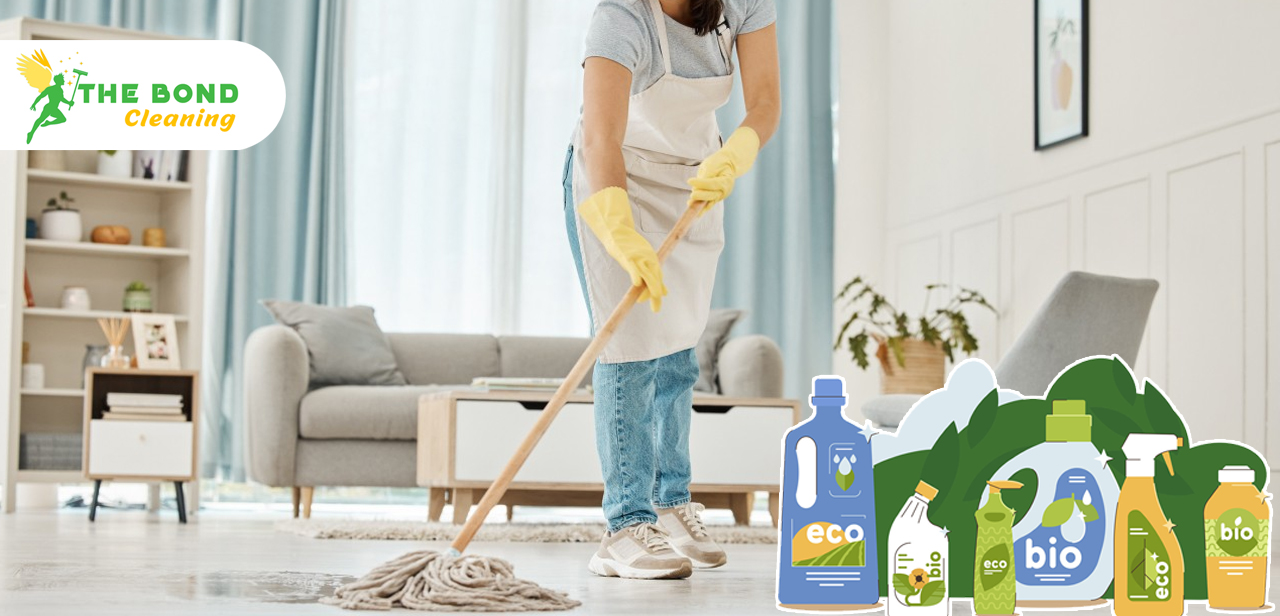Eco-Friendly Cleaning: Sustainable Solutions for a Healthier Home
In recent years, there has been a growing awareness of the impact of traditional cleaning products on both the environment and our health. Many conventional cleaners contain harsh chemicals that not only harm ecosystems but also contribute to indoor air pollution and pose risks to human health. Fortunately, there is a rising tide of eco-conscious consumers seeking alternatives that prioritize sustainability and promote a healthier living environment. In this article, we'll explore the importance of eco-friendly cleaning and provide practical tips for implementing sustainable cleaning solutions in your home.
Understanding the Need for Eco-Friendly Cleaning
Conventional cleaning products often contain a cocktail of synthetic chemicals, including ammonia, chlorine, and phthalates, which can have adverse effects on the environment and human health. These chemicals can contaminate waterways, harm aquatic life, and contribute to air pollution when released into the atmosphere. Moreover, prolonged exposure to these toxins indoors can lead to respiratory problems, skin irritation, and other health issues.
Eco-friendly cleaning, on the other hand, involves using natural, biodegradable ingredients that are safe for both people and the planet. By opting for sustainable cleaning solutions, you not only reduce your ecological footprint but also create a healthier indoor environment for your family.
Essential Ingredients for Eco-Friendly Cleaning
Making the switch to eco-friendly cleaning doesn't have to be complicated or expensive. In fact, many effective cleaning solutions can be made using simple ingredients that you likely already have in your pantry. Here are some essential ingredients for eco-friendly cleaning:
1. Baking Soda: A versatile cleaning agent that helps remove stains, deodorize, and scour surfaces without scratching.
2. White Vinegar: A natural disinfectant and degreaser that can be used to clean countertops, windows, and floors.
3. Castile Soap: A plant-based soap that is gentle yet effective for cleaning dishes, laundry, and various surfaces.
4. Essential Oils: Adding a few drops of essential oils like lavender, lemon, or tea tree oil can enhance the cleaning power of your homemade solutions while providing a pleasant scent.
5. Lemon Juice: Contains citric acid, which has antibacterial and antiseptic properties, making it ideal for cutting through grease and grime.
6. Hydrogen Peroxide: A natural disinfectant that can be used to sanitize surfaces and remove stains without harsh chemicals.
7. Cornstarch: Helps absorb grease and dirt, making it an excellent natural cleaner for carpets and upholstery.
Practical Tips for Eco-Friendly Cleaning
Now that you're familiar with the essential ingredients for eco-friendly cleaning, let's explore some practical tips for incorporating sustainable cleaning practices into your home routine:
1. DIY Cleaning Solutions: Make your own cleaning products using simple ingredients like baking soda, vinegar, and essential oils. Not only are homemade cleaners effective, but they're also more affordable and environmentally friendly than store-bought alternatives.
2. Reduce, Reuse, Recycle: Minimize waste by opting for reusable cleaning tools such as microfiber cloths, sponges, and mop heads. When possible, choose products with minimal packaging and look for opportunities to repurpose or recycle containers.
3. Choose Eco-Friendly Brands: If you prefer to purchase cleaning products, look for brands that prioritize sustainability, use biodegradable ingredients, and avoid harmful chemicals. Certifications like Green Seal and EcoLogo can help you identify environmentally friendly products.
4. Conserve Water and Energy: Practice water and energy conservation while cleaning by turning off taps when not in use, washing full loads of laundry and dishes, and using cold water whenever possible. Consider investing in energy-efficient appliances to further reduce your environmental impact.
5. Opt for Natural Pest Control: Instead of using chemical pesticides, try natural alternatives like diatomaceous earth, neem oil, or cedarwood chips to deter pests without harming the environment or endangering beneficial insects.
6. Ventilate Your Home: Proper ventilation is essential to maintain indoor air quality and reduce exposure to pollutants. Open windows and doors whenever possible to allow fresh air to circulate and minimize the buildup of volatile organic compounds (VOCs) from cleaning products.
7. Practice Green Disposal: Dispose of cleaning waste responsibly by recycling containers, composting organic materials, and properly disposing of hazardous waste like batteries and fluorescent bulbs. Avoid flushing non-biodegradable items down the drain to prevent water pollution.
Conclusion
Eco-friendly cleaning is not only good for the planet but also promotes a healthier home environment for you and your family. By embracing sustainable cleaning solutions and reducing your reliance on chemical-laden products, you can minimize your ecological footprint, improve indoor air quality, and protect natural resources for future generations. Whether you choose to make your own cleaning products or opt for environmentally friendly brands, every small step towards eco-friendly cleaning contributes to a more sustainable and healthier home.




Comments
Post a Comment